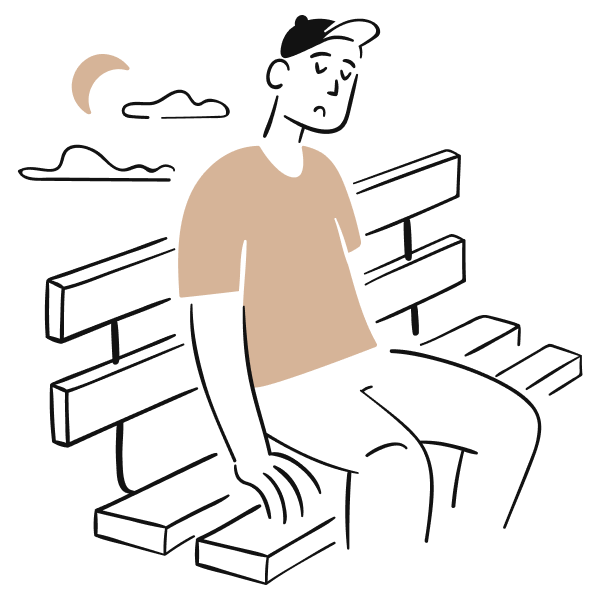You probably want to recover and get rid of the distressing PTSD symptoms as quickly as possible. PTSD can be cured through proper treatment? This article outlines how PTSD is treated. Read about recovering from post-traumatic stress disorder, tips and the possible treatments.
Can PTSD Be Cured?
With the right treatment, it’s definitely possible to recover from the symptoms of post-traumatic stress disorder. There are several treatment options available. You’ll always be involved in the development of your treatment and it will be tailored to your personal situation. Additionally, there are a number of things that you can do for yourself that will contribute to your recovery.
How Can You Manage PTSD Yourself? A few tips:
- Acknowledge your symptoms and feelings
Take them seriously. It may help to write about your PTSD symptoms, problems and fears. Writing helps you to figure out what’s going on inside your head. You can put your thoughts and feelings into words. That’s always a relief. - Talk about your feelings
Find someone close to you who you can trust; somebody you feel safe with, who is willing to listen to you. Talking about what happened and all your feelings related to it is really helpful. - Maintain a regular routine
Structure and routine are an important part of getting through the day. - Do relaxation exercises
When you’re feeling tense and anxious, it helps to do relaxation exercises. This could be in the form of breathing exercises or meditation. - Find a distraction
Don’t let yourself withdraw and stay inside all day. Go for a nature hike; bake or cook something tasty; do the things you loved to do before your symptoms developed. You may not really feel like it, but do it anyway. It will help to take your mind off things and provide a burst of positive energy.
How is PTSD treated?
Treatment for post-traumatic stress disorder won’t look the same for everybody. There are a variety of different treatments, therapies, and techniques available. If you’re having therapy for PTSD, your psychologist will discuss with you what the best treatment is for your personal situation.
Treatment for PTSD usually consists of one (or a combination of several) of the following techniques:
1. Cognitive Behavioral Therapy (CBT)
Cognitive Behavioral Therapy is often used to treat PTSD. It is a form of therapy where you learn to look at your problems or memories through a new lens. You learn to think differently about the event that happened, changing the way you feel about the situation. There are various forms of cognitive behavioral therapy:
- Imagery rescripting
Imagery rescripting is a method of treatment in which your psychologist helps you to go back in your mind to the moment of trauma. By imagining a different outcome to the event (the way you wish things had turned out) you can change the memory. - Exposure therapy
In exposure therapy, your psychologist will keep asking you questions about your distressing memories. Having to tell the story over and over again, maybe even writing it down in detail, will make you feel less afraid of it. As a result, this will change the way you think about it.
2. EMDR
EMDR is short for Eye Movement Desensitization Reprocessing. The goal of EMDR is to blur the emotional charge associated with a particular memory. During the treatment, you’ll be asked to think about the distressing event. This will temporarily move it from your long-term memory to your working memory. Meanwhile, the psychologist will move their fingers up and down in front of your eyes. You’ll follow these movements with your eyes while thinking about the memory. Because your working memory is now having to process a lot at once, the image of your memory will fade and so will the emotional charge associated with it.
Nervous about PTSD Treatment?
Some people feel nervous or scared about going to therapy for PTSD. Amongst other things, they’re afraid of having to relive difficult memories while discussing them with a psychologist. Remember that, ultimately, therapy will actually make you feel less anxious and less likely to engage in avoidant behaviors. If you want to recover from PTSD, it’s important to get the right treatment.
Direct Help PTSD
Do you need someone to answer your questions, offer immediate help, or just provide a listening ear? A psychologist can help you. Recovering from PTSD is possible, but you’ll need some support.
-
Do you have questions about treatments? Call us on +31207717996 and we will give you personal advice and help creating a treatment plan.
-
At iPractice we use blended care. This is a combination of online and offline therapy. You’ll have face-to-face conversations with a consulting psychologist and you’ll also have access to an online psychologist in between. This means that you can ask questions and share your thoughts whenever you like.
-
PTSD can be treated with Cognitive Behavioral Therapy and/or EMDR. Your treatment will be tailored to you and the PTSD symptoms. With the right treatment you can make a good recovery from PTSD. Click here to learn more about treatments for PTSD.
-
The cost of treatment is reimbursed by most health insurance companies when there is a referral letter from the GP and when the GP can make an official diagnosis according to DSM-5 guidelines.


 Nederlands
Nederlands




